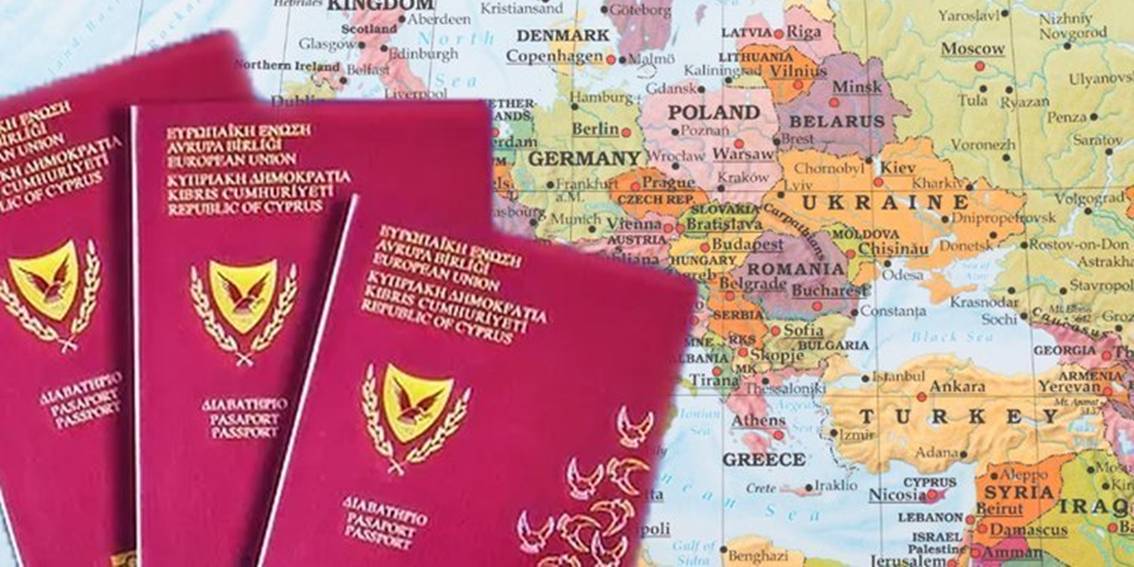The Golden Passports
The golden passport scheme in Cyprus sparked significant controversy and backlash, unravelling a web of corruption, greed, and negligence. This program allowed wealthy foreign investors to obtain Cypriot citizenship in exchange for substantial investments, typically in real estate or businesses. While proponents touted the scheme as an economic boon, critics exposed glaring ethical and legal violations that tarnished Cyprus’s international reputation.
The Origins and Mechanism of the Golden Passport Program
The Cypriot government launched the golden passport program in 2007 to attract foreign investment and revitalize its economy. After the 2013 financial crisis, the scheme expanded, offering passports to individuals who invested at least €2 million. Investors flocked to Cyprus, drawn by the promise of European Union citizenship and visa-free travel to over 170 countries.
Under the program, applicants had to fulfil specific criteria, including purchasing property and maintaining investments for a minimum period. Government officials claimed they conducted rigorous background checks to ensure the legitimacy of applicants. However, investigations revealed glaring deficiencies in these checks, allowing questionable individuals to exploit the program.
Uncovering the Scandal
Al Jazeera’s investigative report, known as the “Cyprus Papers,” blew the lid off the golden passport scandal in 2020. Journalists exposed how Cypriot officials facilitated citizenship for individuals linked to criminal activities, including money laundering and fraud. The report included damning footage of high-ranking officials offering to bypass legal requirements for certain applicants.
The most explosive revelation involved Cyprus’s parliamentary speaker, who appeared in undercover recordings discussing ways to grant citizenship to a fictitious Chinese investor with a criminal record. These revelations led to public outrage, prompting both officials to resign.
Who is Responsible for the Golden Passport scheme
The Golden Passport scheme in Cyprus, officially known as the Cyprus Investment Program (CIP), was primarily overseen by the Ministry of Interior and the Council of Ministers of Cyprus. Launched in 2013, the program allowed foreign investors to obtain Cypriot citizenship in exchange for substantial investments in the country, particularly in real estate and infrastructure.
The Ministry of Interior managed the application process, while the Council of Ministers had the authority to approve or reject applications. Various legal and real estate firms also played a significant role in facilitating applications for investors.
However, the scheme faced criticism for alleged lapses in due diligence, leading to accusations of corruption and abuse. In 2020, following investigative reports and mounting pressure from the EU, the Cypriot government announced the termination of the program. Responsibility for the oversight and controversies surrounding the scheme lies with the Cypriot government and its implementing bodies.
The Economic Benefits and Ethical Costs
Supporters of the program emphasized its economic contributions. Between 2013 and 2020, the scheme generated over €8 billion, fuelling the real estate sector and creating jobs. Luxury developments, such as high-end apartments and hotels, transformed parts of Cyprus into hubs for affluent investors.
However, these benefits came at a steep cost. Critics argued that the program prioritized short-term financial gains over long-term sustainability. The influx of foreign wealth inflated property prices, making housing unaffordable for many locals. Additionally, the program’s association with corruption and criminal activity damaged Cyprus’s credibility and strained its relationships with EU partners.
Repercussions and Government Response
The golden passport scandal triggered a wave of investigations and reforms. The Cypriot government faced intense pressure from both domestic and international stakeholders. In response, authorities terminated the program in November 2020 and initiated reviews of previously granted citizenships.
The government’s investigation found that over half of the passports issued under the program violated legal or procedural requirements. Officials revoked citizenships in several cases, targeting individuals linked to serious crimes. Despite these measures, critics accused the government of failing to hold key perpetrators accountable.
The European Union also weighed in, expressing deep concerns about the implications of such schemes. EU officials warned that programs granting citizenship in exchange for investment posed risks to security and undermined the principles of the bloc. The scandal placed Cyprus under heightened scrutiny and fuelled calls for stricter regulations across member states.
Lessons and Broader Implications
The golden passport scandal in Cyprus underscored the risks inherent in citizenship-by-investment programs. While these schemes can boost economies, they often create loopholes for exploitation and corruption. The Cyprus case highlighted the importance of transparency, accountability, and adherence to the rule of law.
Other countries operating similar programs have taken note of Cyprus’s failures. Nations such as Malta and Portugal implemented stricter vetting processes and introduced safeguards to prevent abuses. The scandal also reignited debates about the ethics of monetizing citizenship and the balance between economic incentives and national integrity.
The Path Forward
Cyprus continues to grapple with the fallout of the golden passport scandal. Restoring public trust and international credibility remains a significant challenge. The government must demonstrate a genuine commitment to reform by addressing systemic corruption and ensuring accountability for past wrongdoings.
Moving forward, policymakers should prioritize sustainable economic strategies that benefit the broader population rather than catering to elite interests. Strengthening regulatory frameworks and enhancing oversight mechanisms will prove essential in preventing similar scandals.
The golden passport scheme served as a cautionary tale for Cyprus and the global community. By learning from these mistakes, nations can strive for economic growth without compromising ethical standards or national security. Cyprus now faces the arduous task of rebuilding its reputation and ensuring that its future policies align with the values of integrity and justice.
You May Also Like This:
Migrants Stranded in the Buffer Zone: https://anatolikilemesou.com/?p=1530
Buffer zone Barbed Wire: https://anatolikilemesou.com/?p=4893
The Scandal over Golden Passports: https://www.transparency.org/en/campaigns/ending-corrupt-abuse-european-union-golden-passports-visas







